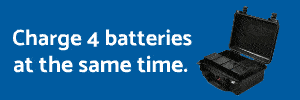Gentlemen;
I think its erroneous to assume all the rules are good, right and work for the best interest of all involved. The FAA rules are like a pig **** (excuse my French). They were written by pilots, NOT drone pilots, which as different as night and day. So I find the enforcement of these ridiculous rules - and the self-proclaimed FAA police - a little ridiculous.
Consider this:
1) Drone rules were written by people who have never flown a drone. So ridiculous paradigms - like FPV flying is dangerous - make it into the rule books. FPV is a PROFOUND instrument of safety. And I would challenge anyone to do some field tests and try to recover a malfunctioning drone with and without FPV. I'll take the FPV safety net ANY day. I NEVER fly without having my goggles on my head. I may not use them, but if **** goes wrong, the first thing I'm doing is putting them on and getting a PILOT'S PERSPECTIVE of my bird. Ask any pilot if they'd rather fly their 747 remotely, or from the cockpit.
2) There's no practical test. None. So you could literally be a housewife who has never flown a drone in your life, and be FULLY CERTIFIED by the FAA. Ridiculous.
So...until the FAA (and UK equivalents) get their proverbial **** together, I think it would behoove us to use our common sense, follow AMA rules, be courteous, and PRACTICE FLYING. YOUR SKILL is the ONLY thing between you and an accident. At this point of the game, we ALL OWN OUR OWN SAFETY. NOTHING the FAA has done or said is making drone flying any safer than it was 10 years ago. Paperwork, certificates and procedure to NOT a safe drone pilot make.
That's my 2 cents. Agree or disagree if you wish. I'll let my 30+ years of RC flying speak for itself.
D
Edited by moderator for language






